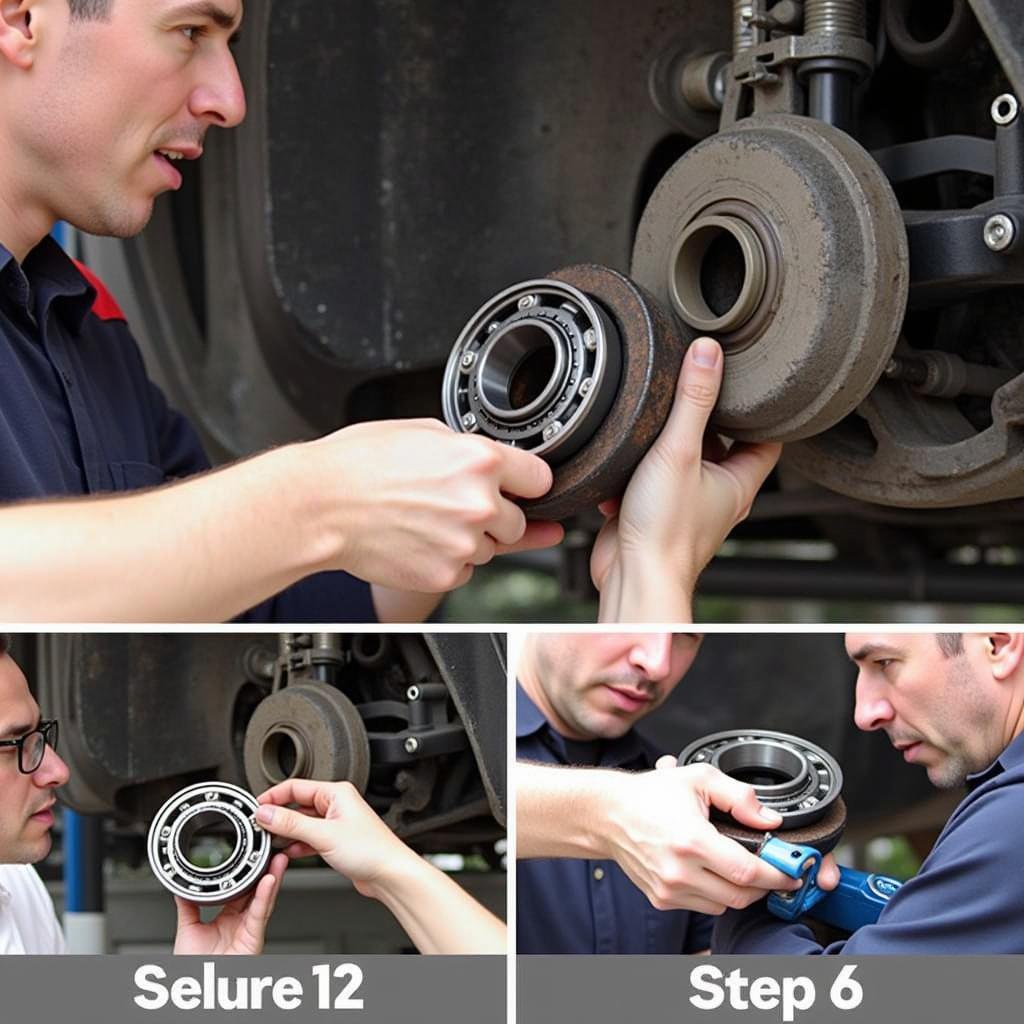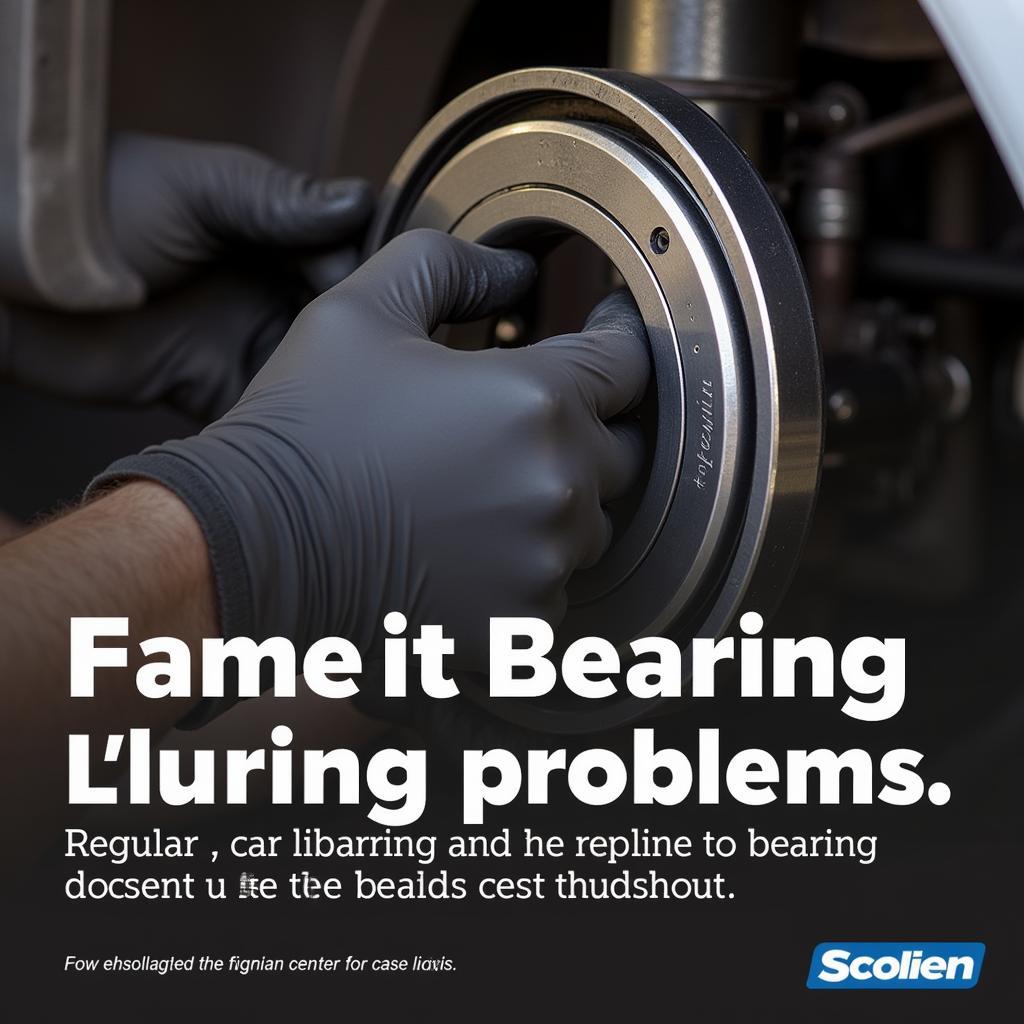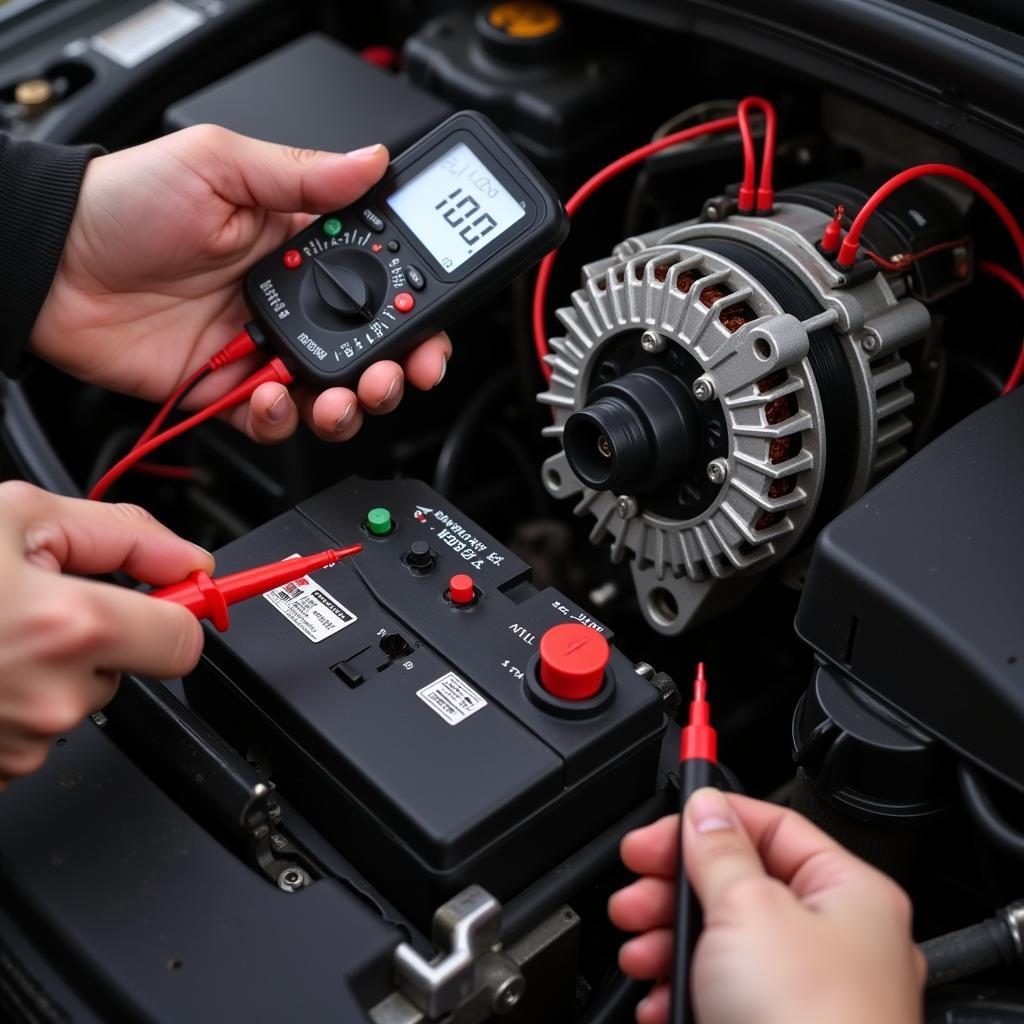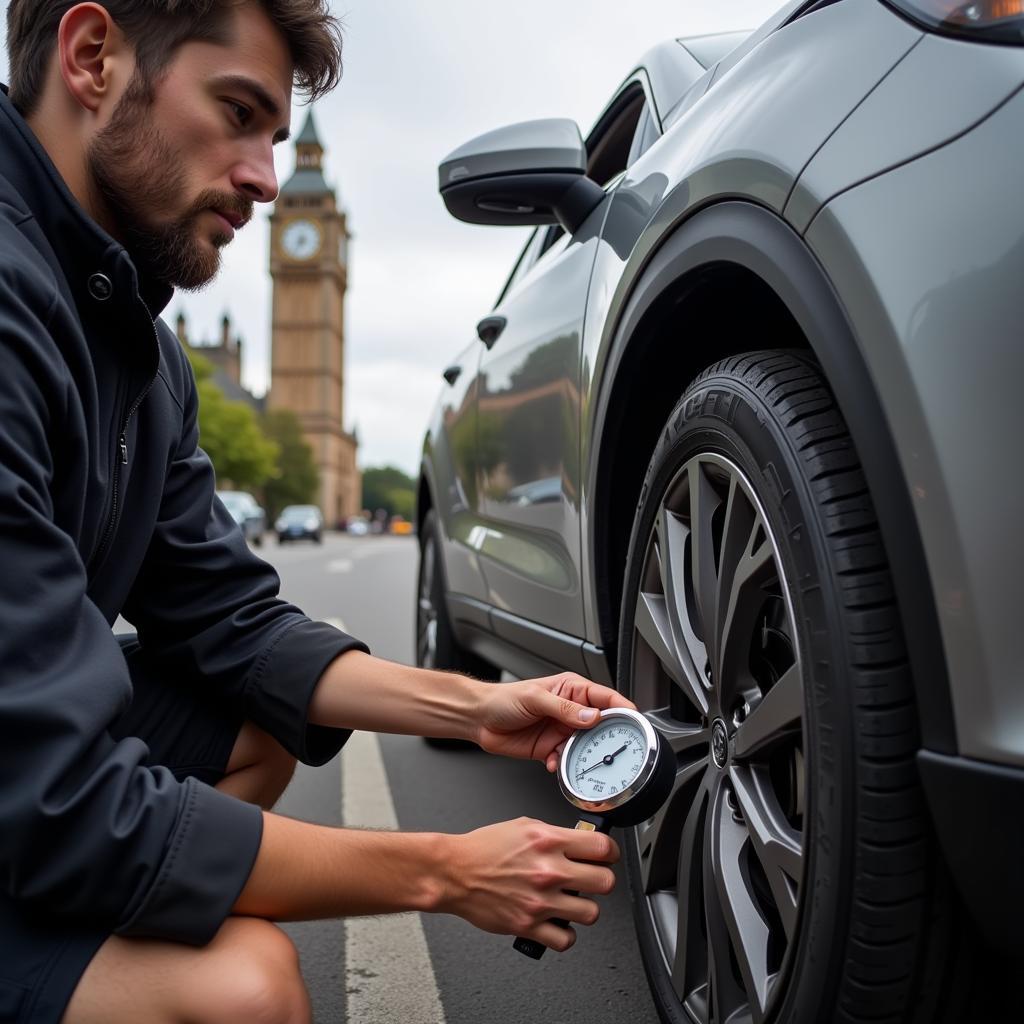Car Bearing Problem Symptoms can be subtle and often go unnoticed until significant damage has occurred. Knowing how to identify these signs early can save you costly repairs and ensure your safety on the road. This guide provides a comprehensive overview of car bearing problems, from their causes and symptoms to diagnosis and solutions.
As a car owner, understanding the function and potential issues related to wheel bearings is crucial. Wheel bearings allow the wheels to rotate smoothly with minimal friction. Over time, these bearings can wear out or become damaged, leading to a variety of problems. Recognizing the early “car bearing problem symptoms” can prevent further damage and ensure safe driving. For more information on car ball bearings, check out this resource: car ball bearings problems.
Understanding Car Bearing Problems
Wheel bearings are essential components that connect the wheels to the axle, enabling smooth rotation. They endure constant stress and friction, making them susceptible to wear and tear. Several factors can contribute to bearing failure, including normal wear and tear, improper installation, lack of lubrication, and exposure to water and debris. Early detection is key to preventing costly repairs and maintaining optimal vehicle performance. For a deeper dive into bearing issues, see this article on bearing problem in car.
Common Car Bearing Problem Symptoms
One of the most common car bearing problem symptoms is a humming or growling noise, particularly noticeable at higher speeds. This sound often changes pitch or intensity when turning the steering wheel. Other signs include:
- Unusual noises: Grinding, clicking, or squealing sounds emanating from the wheel area.
- Vibration: Noticeable vibration in the steering wheel, floorboard, or seat.
- Uneven tire wear: Excessive or uneven wear on one side of the tire.
- Play in the wheel: Looseness or wobble in the wheel when rocking it back and forth.
- ABS warning light: In some cases, a faulty wheel bearing can trigger the ABS warning light.
Diagnosing Car Bearing Problems
Accurately diagnosing car bearing problems requires a systematic approach. A thorough inspection by a qualified mechanic is recommended. The mechanic will typically:
- Visually inspect the wheels and tires for any signs of damage or uneven wear.
- Check for play in the wheel by rocking it back and forth.
- Listen for unusual noises using a stethoscope or by test driving the vehicle.
- Inspect the bearing assembly for signs of wear, damage, or contamination.
How to Fix Car Bearing Problems
Once a faulty bearing is diagnosed, replacement is the only solution. While some DIY enthusiasts may attempt this repair, it’s generally recommended to have a professional mechanic perform the replacement due to the specialized tools and expertise required. Ignoring a bad wheel bearing can lead to more serious problems, including wheel detachment or brake failure.
 Replacing a Car Bearing
Replacing a Car Bearing
Preventing Car Bearing Problems
Regular maintenance can help prevent car bearing problems and extend their lifespan. This includes:
- Regular lubrication: Ensure the bearings are properly lubricated during scheduled maintenance.
- Avoiding harsh driving conditions: Minimize driving through deep water or over rough terrain.
- Proper tire inflation: Maintaining correct tire pressure reduces stress on the bearings.
- Promptly addressing any unusual noises or vibrations: Early detection and repair can prevent further damage.
If you’re experiencing issues with your car’s transmission, you might find this helpful: car transmission problems symptoms.
What Happens If You Ignore Car Bearing Problems?
Ignoring car bearing problem symptoms can lead to a cascade of issues, impacting safety and increasing repair costs. A worn bearing can seize, causing the wheel to lock up while driving, resulting in loss of control. Additionally, increased friction and heat can damage surrounding components, such as the hub, axle, and brakes.
“Addressing bearing issues promptly is crucial for safety and can save you from extensive and costly repairs down the line,” says automotive expert, John Davis, ASE Certified Master Technician.
When to Seek Professional Help
If you suspect a car bearing problem, seeking professional help is always the best course of action. A qualified mechanic can accurately diagnose the issue and perform the necessary repairs. Delaying repairs can exacerbate the problem and lead to more extensive damage. For those experiencing charging system issues, this resource can be valuable: signs of a problem with my car’s charging system.
Conclusion
Car bearing problem symptoms shouldn’t be ignored. Recognizing these signs early and seeking professional help can prevent costly repairs and ensure your safety on the road. Regular maintenance and prompt attention to any unusual noises or vibrations can help extend the life of your wheel bearings and keep your car running smoothly. For more information or assistance, connect with AutoTipPro at +1 (641) 206-8880 or visit our office at 500 N St Mary’s St, San Antonio, TX 78205, United States. Don’t let a small problem turn into a major headache! You might find this article helpful as well: nissian 2008 rogue shif problem clicks when poshing car.
 Car Bearing Maintenance Tips
Car Bearing Maintenance Tips
FAQ
- What is the average lifespan of a car bearing? Car bearings typically last between 85,000 and 100,000 miles, but their lifespan can vary depending on driving conditions and maintenance.
- How much does it cost to replace a car bearing? The cost of replacing a car bearing can range from $200 to $500, depending on the make and model of your vehicle and the labor costs in your area.
- Can I drive with a bad wheel bearing? While you might be able to drive for a short distance with a bad wheel bearing, it’s highly recommended to avoid driving and have it replaced immediately.
- How long does it take to replace a car bearing? Replacing a car bearing usually takes between 1 and 3 hours, depending on the vehicle’s complexity.
- What causes car bearings to fail? Common causes of car bearing failure include normal wear and tear, lack of lubrication, water and debris contamination, and improper installation.
- How can I prevent car bearing problems? Regular maintenance, including proper lubrication and avoiding harsh driving conditions, can help prevent car bearing problems.
- What are the signs of a bad wheel bearing? Common signs include humming or growling noises, vibration, uneven tire wear, and play in the wheel.







Leave a Reply